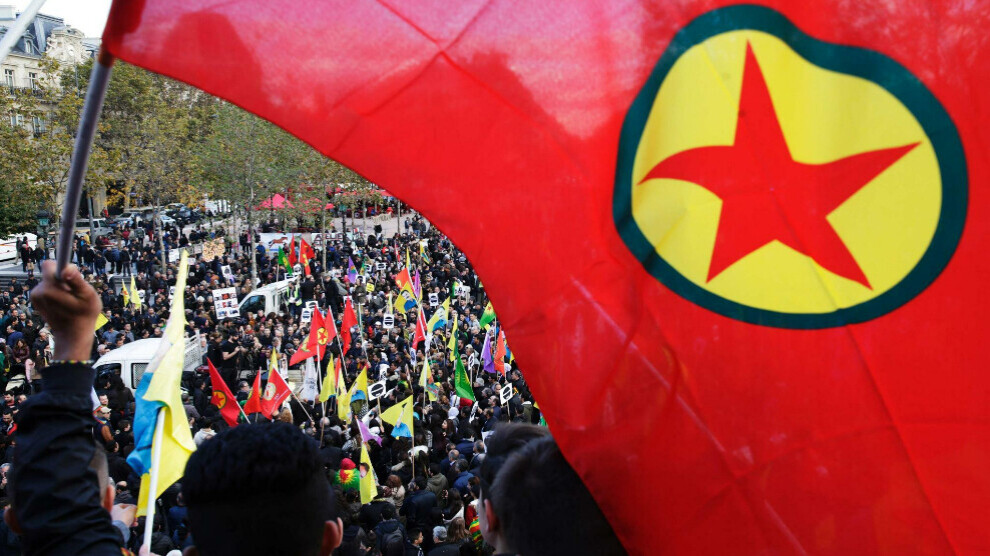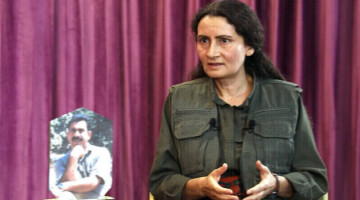The international Justice for Kurds Initiative initiated a campaign on December 13, 2021 to remove the Kurdistan Workers' Party (PKK) from the European Union's (EU) list of "Terrorist Organizations." The effort, led by over a thousand internationally recognized people from 30 countries, aims to remove the PKK from the EU and US "Terrorist Organizations" lists.
The effort, which began in many languages on the website "Justice For Kurds" (https://justiceforkurds.info) and is currently being carried out throughout Europe, the United States, Canada, and Australia, intends to collect 4 million signatures. The signatures are sent to the European Union's Council of Ministers, which regularly decides on the lists, and the US Department of State.
It is critical that the PKK be removed from these lists in order to shatter the international criminalization policy maintained for the Kurdish people's freedom struggle. So, why was the PKK labelled a "terrorist" by the EU, and what happened behind closed doors during important processes?
THE PROCESS STARTED WITH GERMANY'S BAN
First, the German government outlawed PKK activities in 1993, citing the "law on associations." Although Germany did not formally recognize the PKK as a "terrorist organization" during those years, it closed Kurdish institutions and imprisoned or fined Kurdish activists and politicians. After Germany, various other European countries followed suit in the early half of the 1990s, outlawing the Kurdish liberation movement one after the other.
The US administration would make the expected decision a few years later. On August 10, 1997, the US Department of State's Department of Foreign Terrorist Organizations added the PKK to its list of "Foreign Terrorist Organizations." Not much more than a year later, the White House administration of the time would be known to have made such a decision, as the first step in the International Conspiracy against Kurdish People's Leader Abdullah Öcalan with other world forces on October 9, 1998.
While the US State Department labelled the PKK a "terrorist organization" using events from the 1990s' dirty war in Kurdistan and Turkish court judgements as justifications, the UK made the same decision three years later for similar reasons. Despite the fact that there was no violent attack on the United Kingdom as there had been in the United States, the PKK was added to the list of "Terrorist Organizations" on July 20, 2000, by the London administration. Following the lead of the United Kingdom, Canada and Japan made similar decisions in 2002, Australia in 2005, and New Zealand in 2010, all of which placed the PKK movement on their lists.
PKK WAS NOT ON THE EU'S LIST IN THE FIRST PLACE
Following the September 11, 2001 attacks that shattered the United States, the Washington administration began to put pressure on the European Union on the basis of "preventing international terrorism." The EU, according to the US, was weak in the "war against terrorism." As a result, under pressure from the United States, the EU created a list of "terrorist organizations" in December 2001.
The EU's initial list, released on December 28, 2001, includes a total of 12 organizations, namely ETA, the November 17 Organization in Greece, Hezbollah, Islamic Jihad, and Hamas in Lebanon. This list, which was only valid for six months, did not include the PKK. When the Turkish government and other world powers intervened, the EU's governing body, the Council of Ministers, declared on May 2, 2002, that the PKK had also been added to the list.
CRIMES COMMITTED BY THE TURKISH STATE WERE ALSO BLAMED ON THE PKK
While Brussels revised its attitude in reaction to membership negotiations with Ankara, the reasons for adding the PKK to the list were also based on Turkish state court judgements. The PKK was held responsible for 67 actual occurrences between 2003 and 2013, according to ANF’s research. However, it should be noted that the majority of these attacks lacked tangible evidence and relied solely on the Turkish government's allegations.
Indeed, for years, the PKK was blamed on the EU's lists for the crimes committed by the Turkish state. The most notable of these was the EU's accusation of the PKK of being responsible for a mine explosion that killed seven soldiers in Çukurca on May 27, 2009. However, audio recordings and military court hearings revealed later that the commanders themselves had planted the mines, and the accused Brigadier General Zeki Es was condemned to 6 years and 8 months in prison.
On September 29, 2007, seven village guards were killed in an attack that targeted a civilian vehicle in Beşağaç (Hemkan) village of Beytüşşebap, Şırnak. According to a detailed assessment compiled by Mazlum-Der and IHD (Human Rights Association) on October 19, 2007, the PKK clearly had nothing to do with the attack. While it was later revealed that the murder had been premeditated by soldiers and carried out by village guards, the EU blamed the incident on the PKK for many years.
THE EU HAS MADE NO CONCLUSIVE ARGUMENTS SINCE 2018
In response to the EU's unlawful stance, PKK executives Murat Karayılan and Duran Kalkan filed an appeal with the Court of Justice of the European Union in Luxembourg through their Dutch lawyers in 2014. On November 15, 2018, the EU's top court body issued its judgement on the PKK's application.
The Court of Justice deemed the justifications of the UK as the party bringing the claims on behalf of the EU between 2014 and 2017 insufficient and determined that the PKK could not be included on the list for these reasons. Following the Court's judgment, the United Kingdom reapplied for the PKK to be included on the list for 2018, and the PKK was automatically relisted on January 9, 2019.
However, the Council of Ministers, which implements the EU's legislative, administrative, and foreign policy decisions, omitted the concrete incidents that had previously been included in the decision to include the PKK on the list. On the other hand, the EU referenced the fact that the PKK was on the lists of "Terrorist Organizations" in the United States and the United Kingdom. Meanwhile, when the Council of Ministers put the PKK on the amended list again in February 2021, a lawsuit was launched. While three PKK lawsuits are ongoing in Luxembourg, global campaigns gained momentum when the Kurdish Freedom Movement was relisted on July 19, 2021.
Following the international campaign launched in December, thousands of people, including European Parliament members, national assembly deputies, senators, party leaders, mayors, trade union representatives, academics, journalists, artists, and lawyers, have called upon the EU and the US to "remove the PKK from your lists". The inclusion of the PKK on lists of "terrorist groups" legitimizes governmental brutality against the Kurdish people, according to these calls.
RELATED NEWS:














